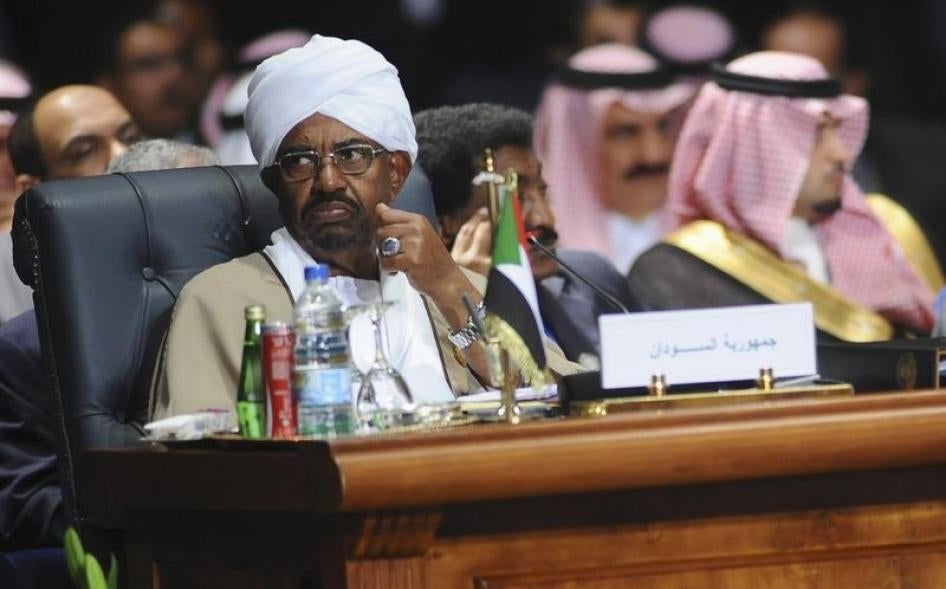(Amman) – Jordan should deny entry to Sudanese President Omar al-Bashir or arrest him if he enters the country, Human Rights Watch said today. Al-Bashir has been invited to visit Jordan on March 29, 2017, to attend the 28th summit of the Arab League, news reports say.
Al-Bashir has been a fugitive from the International Criminal Court (ICC) since 2009. He is the subject of two ICC arrest warrants, issued in 2009 and 2010, related to his alleged role in Sudan's abusive counterinsurgency campaign in Darfur. The charges are for genocide, crimes against humanity, and war crimes.
“Jordan would be defying its international obligations as an ICC member if it allows al-Bashir to visit without arresting him,” said Elise Keppler, associate international justice director at Human Rights Watch. “Welcoming an ICC fugitive would undermine the Jordanian government’s recent efforts to strengthen the country’s rule of law.”
A visit by al-Bashir would be the first time Jordan had welcomed an ICC fugitive. Human Rights Watch wrote to Jordanian authorities about the potential visit but have yet to receive a response.
Jordan’s King Abdullah II in February accepted sweeping recommendations by a royal committee to reform the country’s criminal justice system. If carried out, these measures would be a major step for human rights in Jordan. But a failure by Jordan to uphold its international obligations as a party to the Rome Statue of the ICC would be at odds with these efforts, Human Rights Watch said.
Allowing al-Bashir’s visit would also be a reversal of Jordan’s historical support for the ICC. In 2015, Ahmed al-Mufleh, Jordan’s ambassador to The Hague, said that Jordan “will continue to confirm its support of the International Criminal Court because of its firm conviction over the essential role of the court in achieving international justice and halting impunity from punishment.”
“Jordan is not the first country to face a possible al-Bashir visit,” said Keppler. “But most ICC members have avoided letting him in.”
Since 2009, some ICC members, such as Botswana and Denmark, have affirmatively signaled that al-Bashir risked arrest if he entered their territory, and he has not traveled there. Others have relocated or rescheduled meetings or asked Sudan to send other representatives.
In 2012, Malawi opted to relocate an African Union summit in light of the AU’s insistence that al-Bashir should be allowed to attend the meeting if it took place in Malawi as scheduled. In October 2010, an international development meeting scheduled for Kenya was relocated to Ethiopia to avoid a visit by al-Bashir. In other instances, al-Bashir cancelled anticipated visits – to Central African Republic and Zambia – amid calls for his arrest.
As an ICC suspect, the Sudanese president should appear before the ICC, where he would receive the full range of protections under international law for people accused of crimes.
“Jordan’s government has a chance to demonstrate its credibility on accountability and support for justice for victims of mass atrocities by avoiding an al-Bashir visit,” Keppler said. “Al-Bashir belongs in The Hague appearing before the ICC.”









